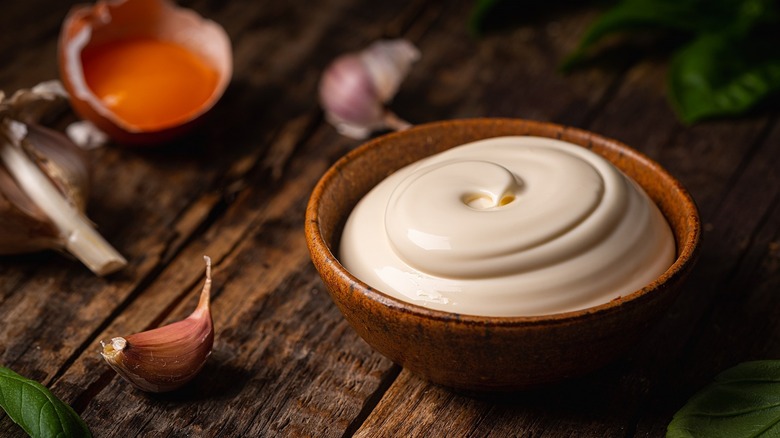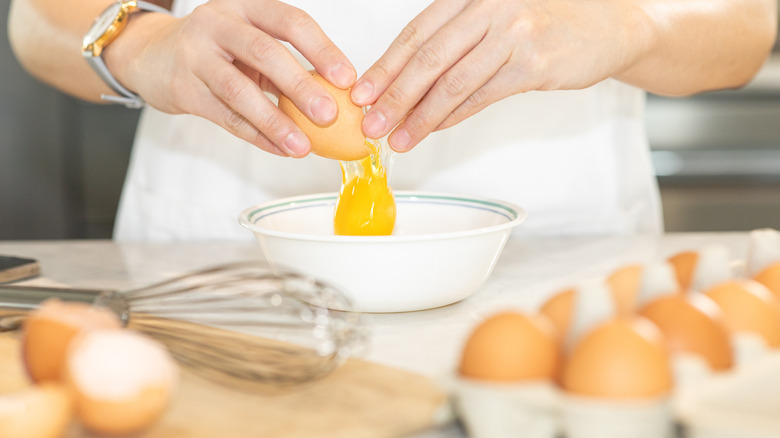The Important Egg Tip To Remember When Making Mayonnaise
Step aside ketchup and mustard: Mayonnaise is apparently the most popular condiment in the United States. According to Statista, in 2021, mayo was the top-selling condiment with over $164 million in sales, just edging out ranch. It's no surprise, given how versatile it is. While you can find (or make) mayonnaise in a bunch of different flavors — from spicy to garlic — a survey of Mashed readers found that more than half of people prefer to stick with the classic: plain mayo.
Walk down the condiment aisle at the grocery store and you'll find plenty of beloved mayonnaise brands lining the shelves (looking at you, Duke's and Hellmann's), but mayonnaise is also something that's easy to whip up at home. All you need to get started is eggs, oil, and either lemon juice or vinegar. However, there are a few tricks to making the perfect mayo in terms of both texture and flavor. Here's one hack to keep in mind no matter which recipe for homemade mayonnaise you choose.
Egg temperature makes a difference
Before you pull your eggs right out of the refrigerator and crack them in your mixing bowl, stop. According to many bloggers and cooks, using cold eggs can negatively affect your homemade mayonnaise. For the ideal creamy and silky mayo, you'll want your eggs to be at room temperature before you mix them in. According to Delishably, mayo only forms when the temperature of eggs is between 70 and 80 degrees. You can let your eggs sit out to warm up, but if you're in a pinch and don't have time to wait, the same writer recommends sitting them in a bowl of warm water until they no longer feel cold to the touch. Note, however, that you don't want your eggs to be too warm as it will cause the same issues.
Why is the temperature so important? "It is because the saturated fat in the egg yolk melts and becomes liquid oil at room temp which is a pre-requisite to form the mayo emulsion," a foodie on Reddit explained. Isn't food science fascinating?

